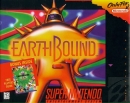TruckOSaurus said:
Mummelmann said:
Market has changed, the 8th gen has peaked early as expected, it was all in motion for some year now for those who wanted to see it.
|
I've been more or less paying attention in the last year or so. I'd be interested in a quick recap of those signs if you don't mind.
|
As I wrote in the infamous UNITY thread at the very beginning of the 8th gen and even before PS4 and One released; smart devices are steering the ship in consumer electronics, leading to increased pace and mass market pandering with added functionality and features, these in turn require more updates and the static nature of consoles relative to more convenience driven devices force manufacturers to make more revisions to maintain appeal and viable breadth to stay within market constants, both in hardware and software. Inevitably though, the increased pace, breadth of market and number of options tailor-made for specific consumer desires and needs leads to shorter overall hardware generations, chip manufacturers are also pumping out revisions and new sets faster than ever before for the same reasons.
To add to that, the 7th gen saw the beginning of the HD era, which was bound to extend the life cycle of concurrent hardware of the period as developers and hardware engineers alike adapted to and entered the new paradigm, not unlike the VGA and SVGA shift in the 90's required adaptations. 1440p and 4k devices ensure the need for continuous updates on hardware chipsets, but rather than the extended period of paradigm shift we saw in the 7th gen, we're seeing more "tricks" being utilized to upscale and/or tailor images and graphics to displays and chipsets in order to keep the need for raw power output to a reasonable, and more mass market-oriented, level both in price and relative R&D and assembly + raw materials cost.
Put simply; "fake" 4k and other upscaling tricks are a direct result of measures taken to pander to the mass market and offer breadth in various devices in an affordable, or seemingly affordable package. To some extent, all currently available static devices are guilty of attempting to appeal to two or more demographics at once, but this has been made much, much harder post-smart device revolution, and is the main catalyst behind the increased need for revision and updates. The hope is that it increases perceived value, which it clearly does in some cases, but the long term effect seems quite small (if the PS4 Pro and the relatively lukewarm expectations of the Scorpio are indications). The irony is that this sort of pandering to mass market leads to added risk of losing core users, which is kind of ironic, seeing as how these are the ones most likely to appreciate said functions and upgrades in their proper form. Not unlike nerds who used chatrooms and online functions in the 90's and early 2000's and even invented the global linguistic twists such as "lol" and "omg" and the mass market has completely swallowed this by now, relatively speaking, of course (as ususal...).
I've stated that the 8th gen would see more revisions than the 7th gen and that it would be a significantly shorter one with an overall contraction of user base, even if onyl counting the core user base. The market has changed a lot since the beginning of the 7th gen. Also; the most static devices (home consoles) have now begun to suffer the same consequences the dedicated handheld did. I think I've also said that the 8th gen was the last gen where all three major conpetitors in the home console space would strive for sameness and that the 9th gen would be where they strive to set themselves apart, mostly out of sheer need.
PS: My original post was supposed to say "for some years now", obviously... 


































































